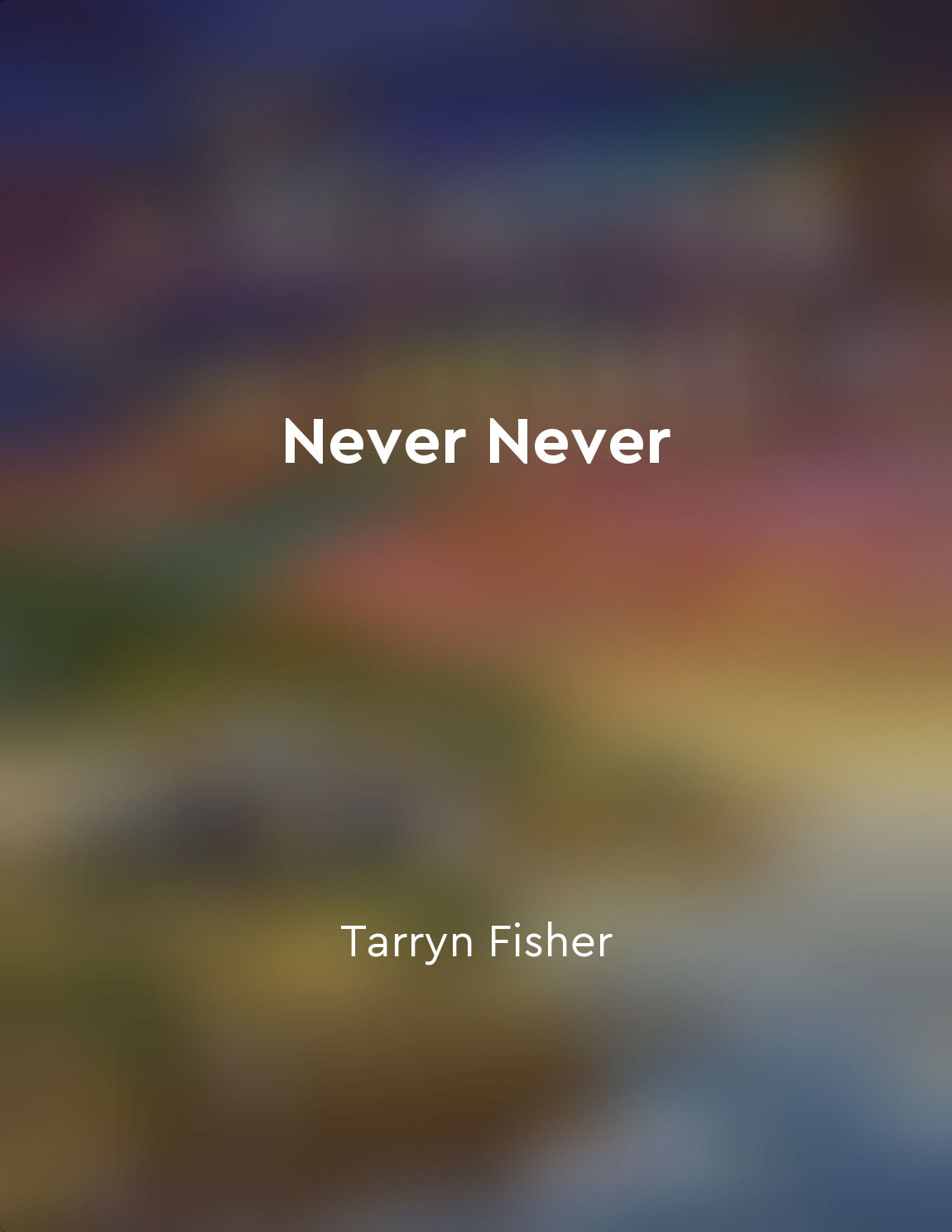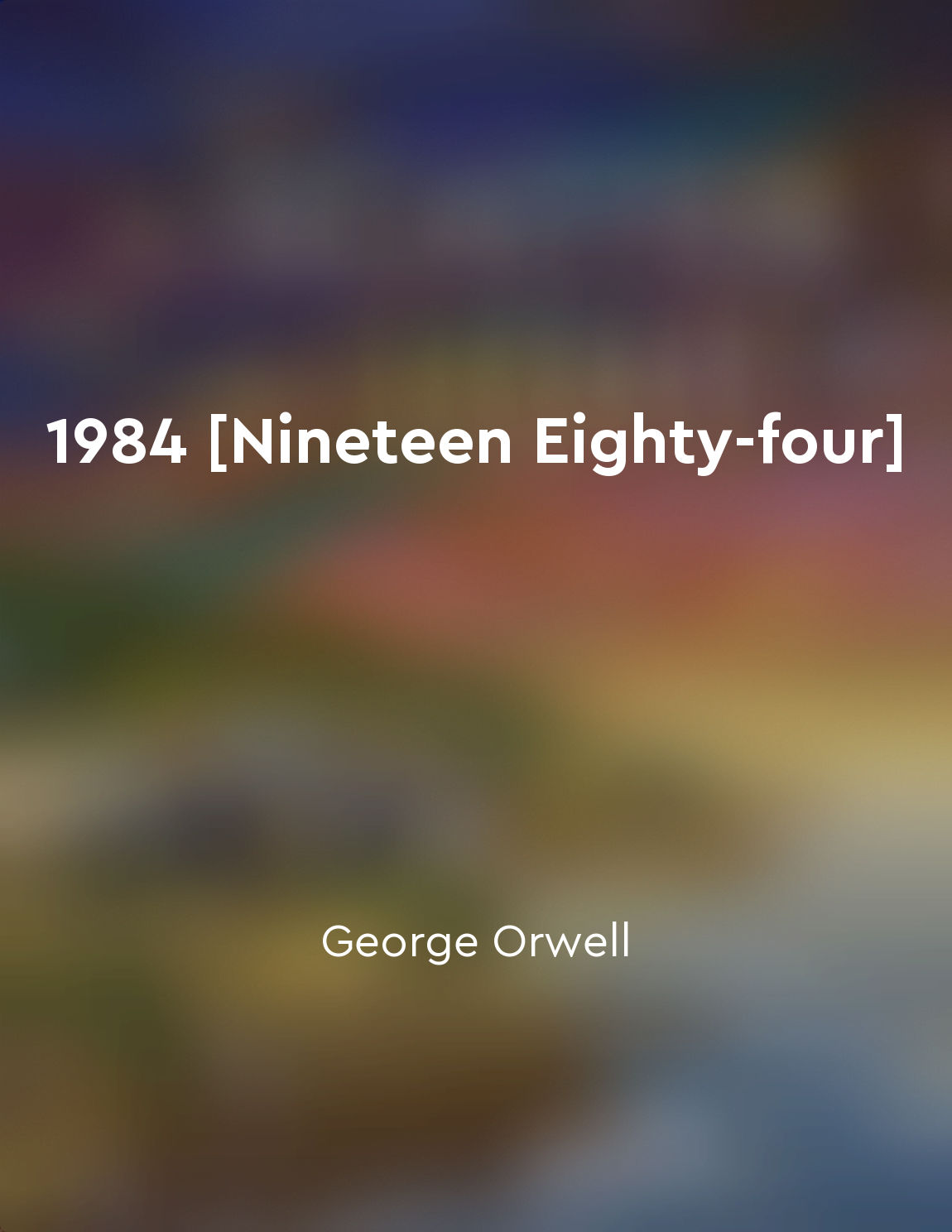Friendship is a luxury in a totalitarian society from "summary" of Darkness at Noon by Arthur Koestler
Friendship, as an institution rooted in trust and mutual support, stands in stark contrast to the oppressive nature of a totalitarian society. In a regime where suspicion and betrayal are rampant, forming genuine connections with others becomes a perilous endeavor. The very essence of friendship, built on honesty and shared experiences, is antithetical to the culture of deceit and surveillance that permeates totalitarian states. Totalitarian regimes thrive on isolation and fear, seeking to break down any sense of solidarity among individuals. By fostering a climate of mistrust and paranoia, the ruling powers guarantee their control over the populace. In such a hostile environment, the luxury of true friendship becomes a rare and precious commodity, one that carries immense risk for those who dare to engage in it. The protagonist of "Darkness at Noon" navigates this treacherous landscape, grappling with the consequences of forming meaningful connections in a society where every word and action is scrutinized. His interactions with others are fraught with uncertainty and the constant threat of exposure, forcing him to confront the inherent dangers of seeking companionship in a totalitarian world. Despite the inherent risks, the protagonist finds solace in the fleeting moments of camaraderie he shares with his fellow dissidents. These brief respites from the oppressive regime serve as a reminder of the humanity that still exists beneath the facade of conformity and fear. In a world where individuality is suppressed and conformity is enforced at every turn, the ability to connect with others on a meaningful level becomes a form of resistance in itself.- The concept of friendship as a luxury in a totalitarian society speaks to the fundamental need for human connection in the face of oppression. It highlights the resilience of the human spirit in the face of adversity, as individuals strive to maintain their sense of self and forge connections with others despite the ever-present threat of surveillance and betrayal. In the darkest of times, friendship becomes a beacon of hope, a reminder that even in the most oppressive of regimes, the bonds of camaraderie and solidarity can endure.
Similar Posts
Healing familial wounds requires patience and commitment
Healing familial wounds is not a quick or easy process; it requires a great deal of patience and commitment. Family dynamics ar...
Society's expectations can be suffocating
It's like you're expected to fit into this mold that society has carved out for you. You're supposed to follow a certain path, ...
Trust your instincts
It's a simple concept, really. Trust your instincts. That little voice inside your head that tells you when something feels off...

Childhood friends Quinn and Graham forget who they are
Quinn and Graham have known each other since they were kids. They have always been close, sharing everything from secrets to dr...
The women found solace in each other's company and support
The women in the shelter were drawn to each other, forming a bond that provided them with much-needed comfort during a time of ...

Rebellion sparks glimmer of hope in oppressed world
In the world of Oceania, where Big Brother reigns with absolute power and control, rebellion is a dangerous act of defiance aga...
The price of freedom is often paid in blood
In the struggle for freedom, sacrifices must be made, sacrifices that often come in the form of bloodshed. Throughout history, ...
She endures heartache
Stephen found herself experiencing a profound and unrelenting sorrow that seemed to consume her very being. It was a heartache ...
The nature of truth is manipulated by those in power
Rubashov, the protagonist in "Darkness at Noon," grapples with the manipulation of truth by those in power throughout the novel...
The Gulag represented a dark chapter in Russian history
The monstrous machine of the Gulag, with its sprawling network of labor camps scattered across the vast expanse of the Soviet U...

